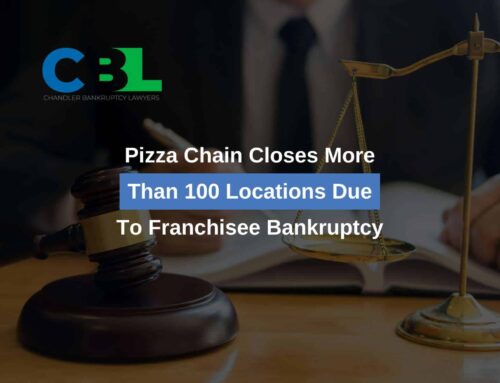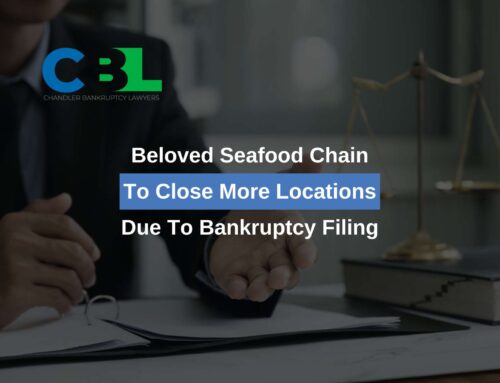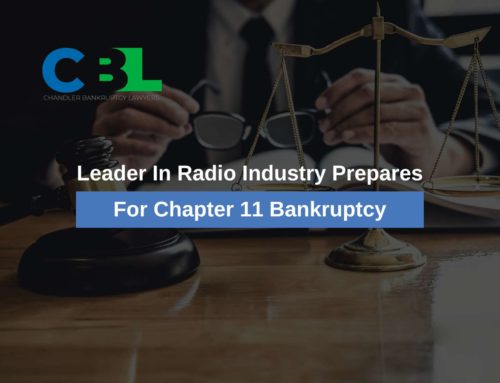When considering bankruptcy, it’s crucial to determine if your housing situation will be secure after filing. Any of the debtor’s assets that aren’t protected by bankruptcy exemptions can be taken by the trustee to sell, keep a chunk of the sale as payment, and distribute the rest of the non-exempt proceeds among creditors. One of the largest exemptions available for bankruptcy filings is the homestead exemption. The homestead exemption can be used to protect a bankruptcy debtor’s home as well as the land on which it is located. It can even be used to protect the proceeds from a recent home sale. Arizona’s homestead exemption specifically states that it can be used to protect mobile homes. However, a recent court ruling has drawn controversy as it excludes motor homes from the definition of mobile homes for bankruptcy purposes. Read on to learn more about In re: Drummond and how it affects bankruptcy filings in Chandler, Arizona. If you’re looking for skilled bankruptcy representation in the Chandler area, call 480-780-2211 for your free consultation with our firm.
What Are Bankruptcy Exemptions?
Bankruptcy exemptions represent how valuable of an asset can be protected from trustee seizure during a bankruptcy filing. There are federal bankruptcy exemptions, and each state has its own exemptions, which can vary in value. Some states allow bankruptcy debtors to choose between federal and state bankruptcy exemptions, but debtors in Chandler will only have the option of using Arizona’s state bankruptcy exemptions. Bankruptcy exemptions protect the market value of an asset, not its purchase price.
Arizona’s homestead exemption is A.R.S. § 33-1101. As of 2024, Arizona’s homestead exemption protects up to $250,000 equity in a debtor’s home. This means that a home worth more than $250,000 can still be protected if the debtor has a mortgage- for example, if the home is worth $450,000 but the debtor has a remaining mortgage of $225,000, that brings their equity down to $225,000 and within the limits for the homestead exemption. The homestead exemption specifically states that it can be applied to a mobile home as well as the land on which a mobile home is located. However, it doesn’t state the exact definition of a mobile home and whether a motor home qualifies as a mobile home.
Some bankruptcy debtors don’t own their homes, and almost all will have various other assets and personal possessions besides their homes. Some of the other bankruptcy exemptions that can protect Arizona bankruptcy debtors’ assets include:
- Motor vehicle: $15,000 for an individual, $25,000 for an individual who has a physical disability or has a dependent with a physical disability. This exemption can be doubled for married couples.
- Clothing: $500, which can be doubled for married couples.
- Bank account or cash on hand: This exemption is only $300, or $600 for married couples. An Arizona bankruptcy debtor will need to carefully time their filing if they want to protect all of the funds in their bank account. Otherwise, they can protect incoming paychecks up to 75% with a separate exemption for earned but not yet received income.
- Household furniture, furnishings, and appliances: $15,000 (fair market value)
- Food, fuel, and provisions: This exemption protects six months’ of food, fuel, and provisions in a bankruptcy debtor’s household. If a bankruptcy debtor has income they would rather spend than lose to the trustee, this is a reasonable way to spend it. However, this exemption doesn’t apply to gift cards. Gift cards to gas stations and grocery stores are treated the same as cash.
- Musical instruments: $400
- One watch: $250
- Firearms: Aggregate value of $2,000
- All domestic animals and household pets
- Personal library: $250
- Engagement and wedding rings: $2,000
In re: Drummond
The United States Bankruptcy Court for the District of Arizona issued its ruling for In re: Drummond on February 23, 2024. When the Drummonds filed for bankruptcy, they were living full-time in their motor home. They assumed that their motor home, a 2017 Tiffin Allegro, would qualify as a mobile home for the purposes of the homestead exemption. However, the trustee disagreed, and stated that their motor home would not be exempt in their bankruptcy filing. In this ruling, the court agreed with the trustee and ruled that the motor home was a recreational vehicle not eligible for protection under Arizona’s homestead exemption.
Upon first review, it might not make sense that the court ruled that a motor home is not a mobile home. However, there was in-depth review and analysis of the facts at hand and existing case law and legal definitions that went into this decision. The main argument is that the homestead exemption is meant to protect a permanent residence, which usually involves some connection to the land on which the property is situated. This connection is clear for homeowners, but condominium owners and other residents of multi-family housing still use plumbing and utilities that are tied to the real property, or land. Mobile homes, while they can be moved, generally remain on a certain site of land for quite some time, if not forever. Motor homes can be moved to a different location in a much simpler manner, and are in fact designed for that purpose. The court argued that motor homes are “readily and inherently movable.” The court also pointed out that the Drummonds used their motor home to travel nationwide from February 2019 to October 2019.
Hiring An Attorney vs. Self-Representation
Only a small number of bankruptcy cases will be argued before the court like In re: Drummond. Having an attorney who can deal with pushback from the trustee could be an important factor in whether it is worth it for you to file for bankruptcy. Another issue that can come up in a bankruptcy filing is when a creditor objects to their debts being discharged. This triggers an adversary proceeding, which means the debtor will need to attend a hearing and argue against their creditor to make sure the debt isn’t excluded from discharge. Another potential creditor issue is if one or more of them files a motion for relief from the automatic stay. The automatic stay is the legal protection that stops creditors from collecting while a bankruptcy is active. If the motion is granted, the creditor can proceed with a collection- such as a lawsuit or a vehicle repossession- before the debtor’s case is completed. When you retain skilled bankruptcy counsel, you can rest assured that your case is in capable hands and your attorney is prepared to address these issues. If you are seeking a skilled Chandler bankruptcy lawyer, call 480-780-2211 to schedule your free consultation.
File For Bankruptcy With Zero Dollars Down In Chandler, Arizona
Bankruptcy can come with complications and concerns, but in exchange, debts are cleared, burdens are lifted, and the debtor can move forward with a fresh start. The issue for many bankruptcy debtors is that the up-front costs can become a barrier to filing. That’s why our firm makes starting bankruptcy more affordable by offering free initial consultations and payment plans starting as low as Zero Dollars Down. Learn more about our services and see if you qualify for free- call 480-780-2211 to get started today or contact us at Chandler Bankruptcy Lawyers.

CHANDLER BANKRUPTCY LAWYERS
1731 West Baseline Road #101
Mesa, Arizona 85202
Phone:480-780-2211
Email: [email protected]
Website: www.chandlerbankruptcyattorney.co
Additional assistance is available from our Arizona Bankruptcy Experts:
Gilbert Bankruptcy Attorneys
Tucson Bankruptcy Lawyers
Glendale Bankruptcy Lawyer
Chandler Bankruptcy Lawyer
Tempe Bankruptcy Lawyers
Arizona Bankruptcy Attorneys






